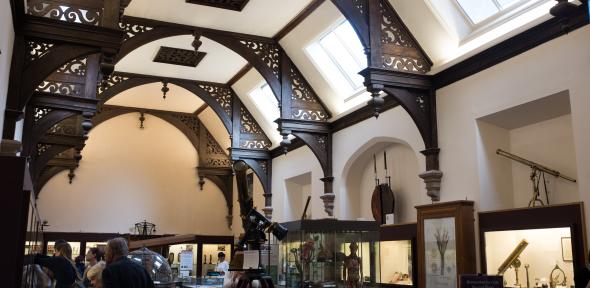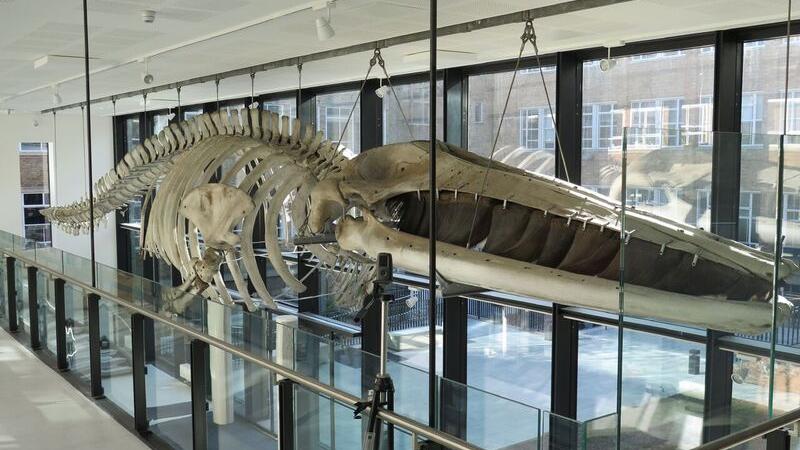A report on our Study Day in Cambridge on 23 July 2021, at the Whipple Museum of the History of Science and the University Museum of Zoology
It was really great to welcome SEMFed members to Cambridge for a study day which we first started planning for in 2019! The day started at the Whipple Museum of the History of Science, with tea and biscuits served according to a rigorous risk assessment and a chance to chat to other members informally.
The first part of the morning was dedicated to the AGM; the committee had done a very good job of running events during lockdown and there were discussions about the study trip in January. This was followed by talks from Alison Giles, SEMFed member and Learning Coordinator at the Whipple, about their virtual volunteering programme and an online project working remotely with pupils in the inclusion unit at Sawston Village College. Members were then given a tour of the museum, enjoying highlights including Darwin’s microscope, Herschel’s telescope and the giant frog.
The weather was slightly breezy but not too cold to make lunch outside unpleasant – thank you to Emily for sorting out refreshments. We then moved on to the Zoology Museum, where there was a carousel of activities:
Matt Hayes led conversations about the museum’s conservation projects in the insect room, as well as showing off some very shiny butterflies and discussing pain scales for insect bites – there were definitely some things which you don’t want to get bitten by!
Roz Wade gave a tour of the museum itself, including some very impressive elephant skeletons, and talked about how the learning programme had had to change during lockdown. If you are interested in what the Zoology museum have been doing virtually there are plenty of resources on their YouTube channel - Zoology Live is a particularly good example of online engagement.
Matt Lowe showed off the museum’s fin whale, which takes pride of place in the newly refurbished entrance hall, and talked about the whale itself and the challenges of refurbishing a museum with so many important specimens which had to stay on site throughout.

